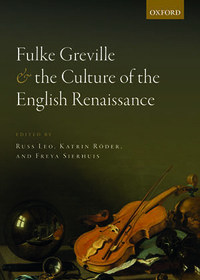
- Boğaziçi University
- Assistant Professor of Western Languages and Literatures
- Affiliation During NDIAS Fellowship: University of Notre Dame
- Graduate Fellow (2013-2014)
- "The Limelight of the Idols: Poetry and Political Theology in Early Modern England"
Ethan John Guagliardo is Assistant Professor of Western Languages and Literatures at Boğaziçi University. His doctoral dissertation traces how the concept of idolatry provided major early modern literary figures like Philip Sidney, Edmund Spenser, Fulke Greville, William Shakespeare, and John Milton with a language to describe the manipulation and creation of political authority. By locating the emergence of a critical (if not necessarily subversive) relationship to authority within the theological discourse of idolatry, his project offers an alternative to traditional secularization narratives.
Mr. Guagliardo is the author of “The Political Atheology of George Puttenham and Fulke Greville” in Modern Philology (forthcoming). A second article, “The Poet, the Skeptic, his Witches and their Queen: Political Theology and Poetic Charms in Sidney’s Defence,” is forthcoming in English Literary History, and a version of this article was presented at the Renaissance Society of America’s annual conference in spring, 2013. He has taught courses in composition and rhetoric as well as an introductory course on lyric poetry.
Among his many awards, Mr. Guagliardo is a Gerald Bruns Distinguished Dissertation Fellow, awarded by the University of Notre Dame Department of English, as well as well as receiving Mellon stipend awards and a Notebaert professional development fellowship, also from the University of Notre Dame.
Publications
-
'Those Ancient Forming Powers': Fulke Greville's Dialectic of Idolatry
Oxford University Press, 2019

Fulke Greville has often been described as a Calvinist and even an ‘ultra-Calvinist’, but this pole of his work stands in tension with the neo-Stoical elements of his thought, in which nature is held out as an ideal against artificiality. This chapter reassesses Greville’s political and religious poetry in light of this tension to argue that Greville uses nature as a platform to critique sovereignty as a poetic artefact, which like the idol hides its artificiality in colours of divinity. Further, Greville implicates orthodox Christianity itself in the ideology of sovereign authority, insofar as its denigration of nature serves to obviate the ‘ancient forming powers’ of sovereignty’s human creators. Nevertheless, Greville’s critique, insofar as it is based on a suspicion of art, turns against itself, such that nature, while held out as an ideal, can never be acted upon without betraying and corrupting it.